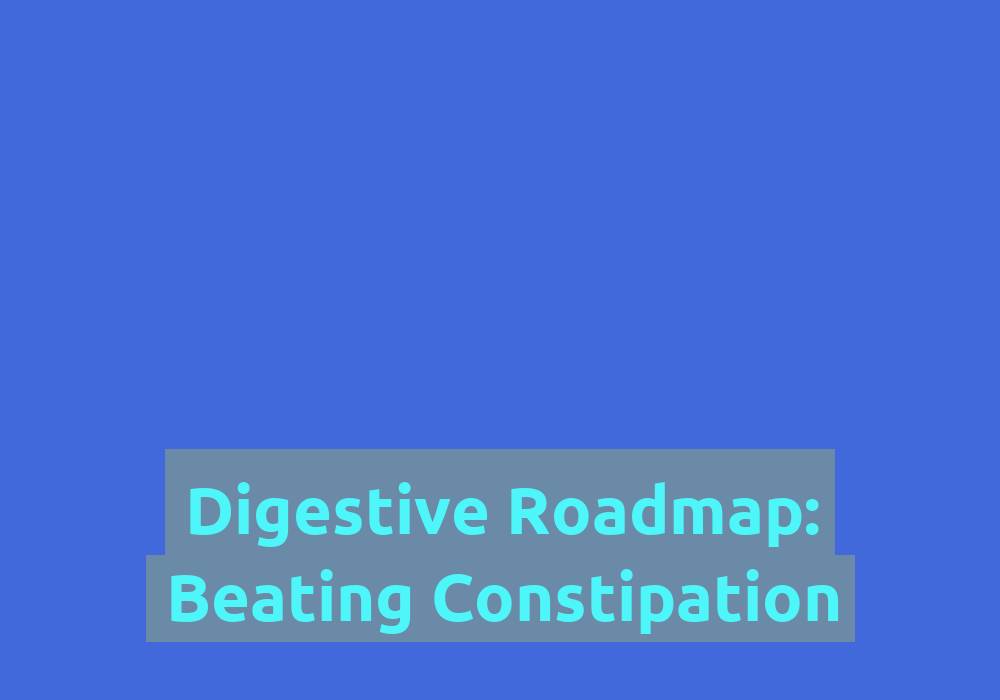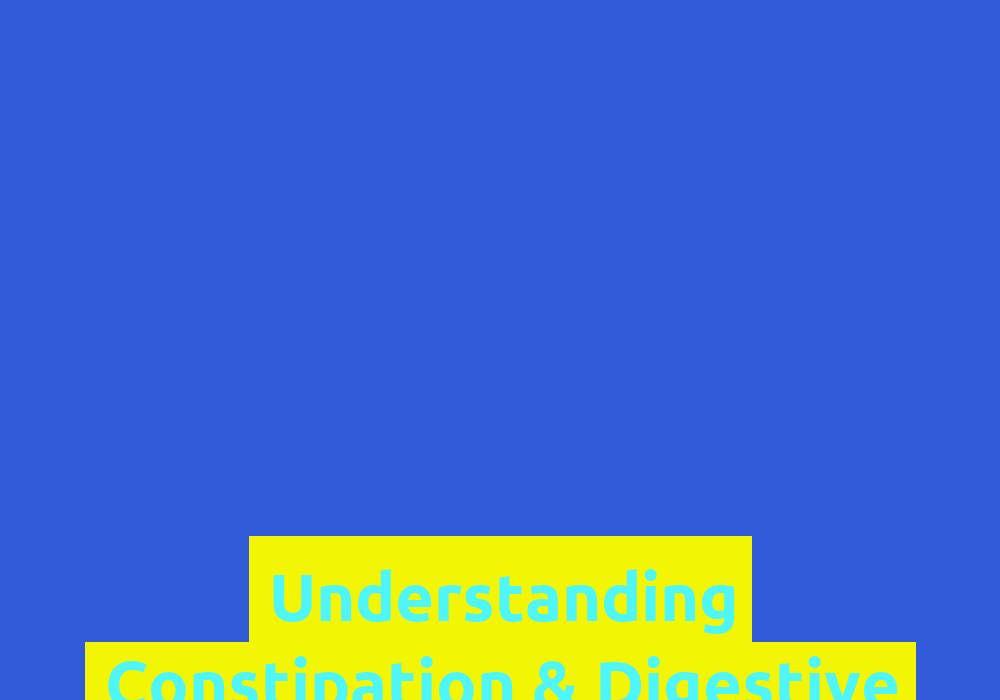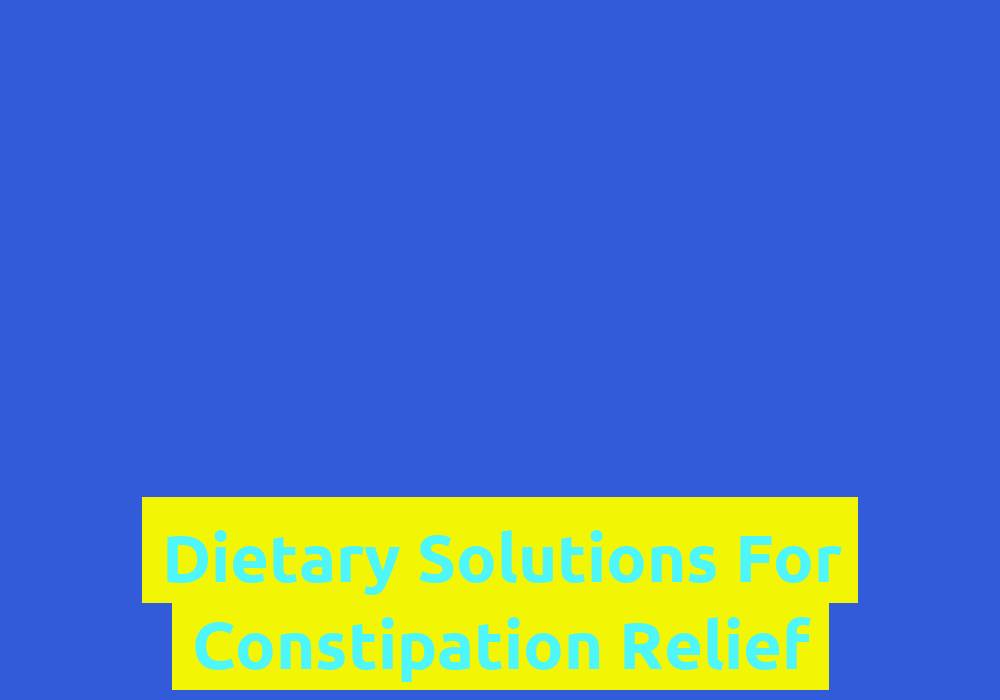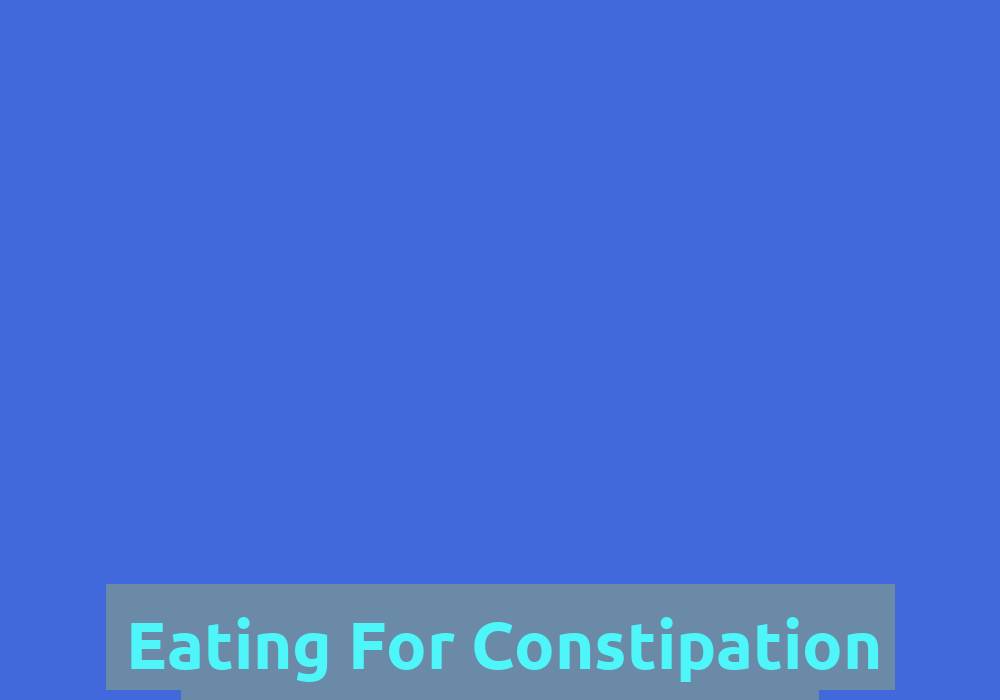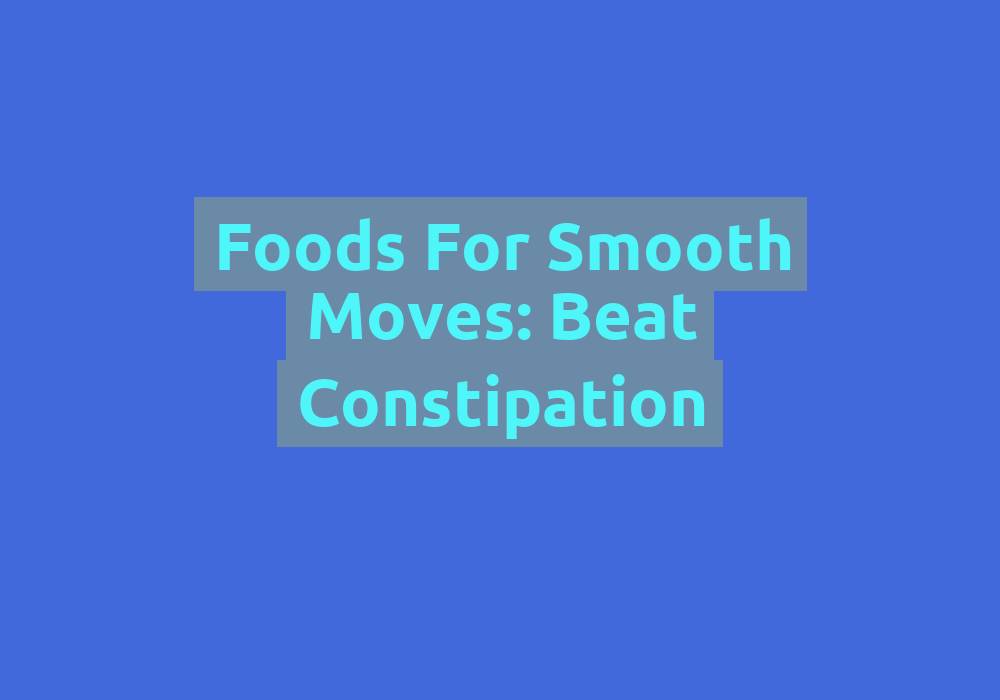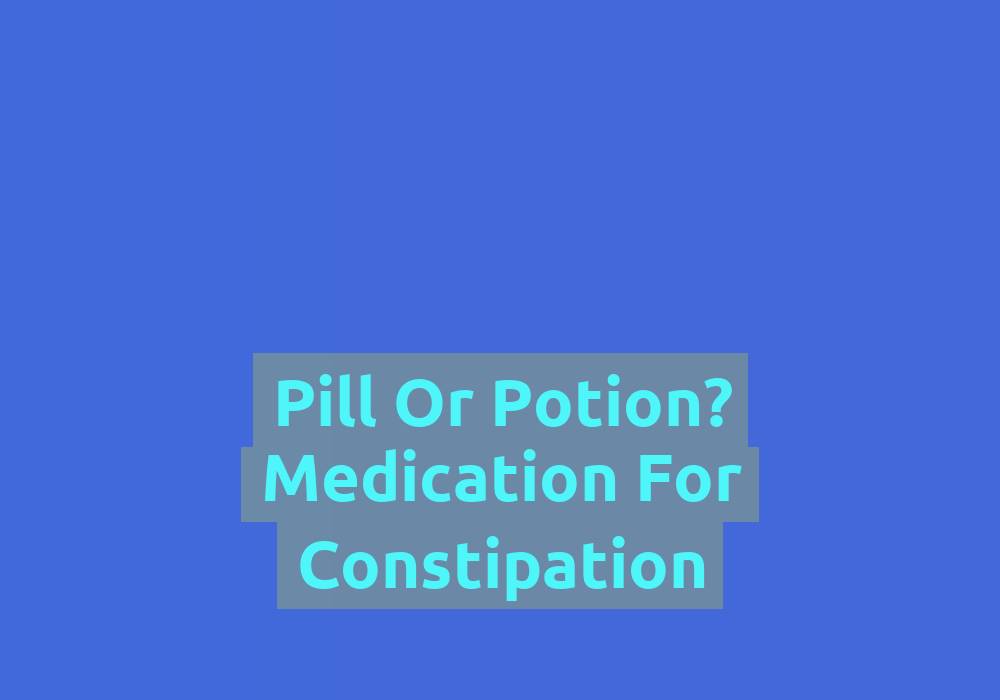Unlocking Digestive Health & Beating Constipation
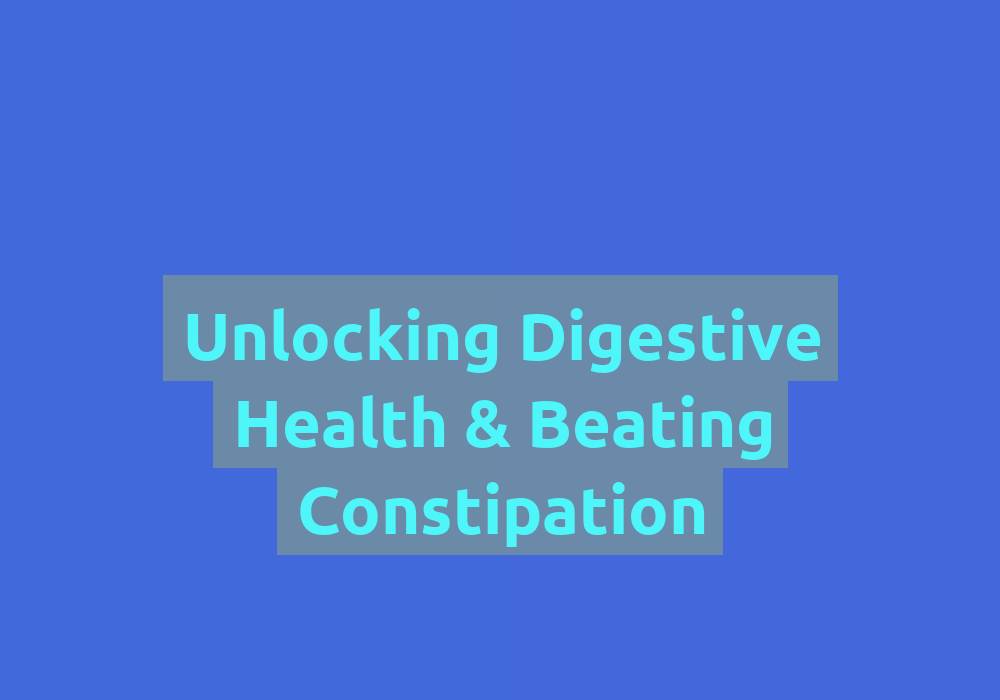
Maintaining good digestive health is essential for overall well-being. It plays a crucial role in nutrient absorption, waste elimination, and maintaining a healthy immune system. However, many individuals suffer from digestive issues, with constipation being one of the most common problems. In this article, we will explore the causes of constipation and discuss effective strategies to unlock digestive health and overcome this discomforting condition.
Understanding Constipation
Constipation refers to infrequent bowel movements or difficulty passing stool. It can be caused by various factors such as a low-fiber diet, inadequate fluid intake, lack of physical activity, certain medications, and even stress. When stool moves slowly through the digestive tract, the colon absorbs more water from it, resulting in dry and hard stools that are difficult to pass.
Expanding on this topic, it’s important to note that stress can significantly contribute to constipation. When we are stressed, our body’s natural response is to enter a “fight or flight” mode, which can disrupt normal bodily functions, including digestion. Stress hormones like cortisol can slow down the movement of food through the intestines, leading to constipation. Therefore, managing stress through relaxation techniques, such as deep breathing exercises, meditation, or engaging in hobbies, can help alleviate constipation symptoms.
The Role of Fiber
Consuming an adequate amount of dietary fiber is crucial for maintaining healthy digestion. Fiber adds bulk to the stool and helps regulate bowel movements. It also promotes the growth of beneficial bacteria in the gut, aiding in overall digestive health. Incorporating high-fiber foods such as fruits, vegetables, whole grains, and legumes into your diet can significantly improve regularity and prevent constipation.
To provide more detail, there are two types of dietary fiber: soluble and insoluble. Soluble fiber absorbs water and forms a gel-like substance in the digestive tract, which helps soften the stool and promote regular bowel movements. Good sources of soluble fiber include oats, beans, lentils, chia seeds, and fruits like apples and oranges.
On the other hand, insoluble fiber adds bulk to the stool and helps it move through the digestive system more efficiently. This type of fiber can be found in foods like whole wheat, brown rice, nuts, and vegetables such as broccoli and carrots. By incorporating both types of fiber into your diet, you can ensure optimal digestive health and prevent constipation.
Hydration is Key
Staying hydrated is essential for optimal digestion. Drinking enough water helps soften the stool and aids in its movement through the intestines. Aim to consume at least eight glasses of water per day and increase fluid intake if you are physically active or in hot weather. Avoid excessive consumption of caffeinated and alcoholic beverages as they can dehydrate the body and worsen constipation.
In addition to water, incorporating other hydrating fluids into your daily routine can also contribute to better digestion. For example, herbal teas, such as chamomile, peppermint, or ginger tea, not only provide hydration but also have soothing properties that can help relax the digestive muscles and promote bowel movements. Additionally, consuming natural fruit juices, like prune or pear juice, can have a mild laxative effect, gently relieving constipation.
Regular Exercise
Leading a sedentary lifestyle can contribute to digestive issues, including constipation. Exercise helps stimulate the muscles in the digestive tract, promoting regular bowel movements. Engaging in activities like walking, running, swimming, or yoga for at least 30 minutes a day can enhance digestion and alleviate constipation symptoms.
To further emphasize the benefits of exercise on digestion, physical activity increases blood flow to the intestines, which improves the overall functioning of the digestive system. It also helps reduce stress levels, which, as mentioned earlier, can contribute to constipation. Moreover, specific yoga poses, such as the seated twist or the wind-relieving pose, can target the abdominal area and provide relief from constipation by massaging the digestive organs.
Healthy Eating Habits
Developing healthy eating habits can have a positive impact on your digestive health. Here are some tips to consider:
Eat a balanced diet: Include a variety of fruits, vegetables, whole grains, lean proteins, and healthy fats in your meals. This ensures you receive essential nutrients while promoting regular bowel movements.
Chew your food thoroughly: Properly chewing your food aids in digestion and allows the body to absorb nutrients more effectively. Avoid rushing meals and take time to enjoy your food.
Avoid processed foods: Processed foods are often high in unhealthy fats, sugars, and additives, which can disrupt digestion. Opt for whole, unprocessed foods whenever possible.
Limit intake of fatty and greasy foods: These foods can slow down digestion and contribute to constipation. Choose leaner protein sources and cook with healthy oils like olive or avocado oil.
Expanding on the topic of healthy eating habits, it’s important to note that incorporating fermented foods into your diet can also promote a healthy gut. Fermented foods like yogurt, kefir, sauerkraut, and kimchi contain beneficial bacteria known as probiotics, which help maintain a balanced gut microbiome. These probiotics can aid digestion by breaking down food and supporting the growth of other beneficial bacteria in the gut.
Natural Remedies
In addition to lifestyle modifications, certain natural remedies can provide relief from constipation:
Herbal teas: Sipping on herbal teas such as chamomile, peppermint, or ginger can help relax the digestive muscles and stimulate bowel movements.
Probiotics: Probiotics are beneficial bacteria that support a healthy gut. Including probiotic-rich foods like yogurt, kefir, sauerkraut, or taking supplements can help restore the balance of gut flora and improve digestion.
Aloe vera juice: Aloe vera juice has natural laxative properties and can help soften the stool. However, it is important to consult with a healthcare professional before using it as a remedy.
Expanding on the topic of natural remedies, it’s worth mentioning that certain herbs and spices can also aid in relieving constipation. For example, senna leaf, a natural laxative, can be brewed into a tea to provide short-term relief from constipation. Additionally, incorporating spices like turmeric or cumin into your meals can help stimulate digestion and promote regular bowel movements.
When to Seek Medical Advice
While lifestyle changes and natural remedies can often alleviate constipation, it is essential to seek medical advice if the condition persists or is accompanied by severe symptoms like abdominal pain, blood in the stool, or unexplained weight loss. A healthcare professional can determine the underlying cause of your constipation and provide appropriate treatment options.
In conclusion, maintaining good digestive health and preventing constipation requires a combination of healthy lifestyle habits, including a high-fiber diet, proper hydration, regular exercise, and adopting healthy eating practices. Additionally, incorporating natural remedies and seeking medical advice when necessary can help overcome constipation and promote optimal digestive well-being. Start implementing these strategies today and unlock a healthier digestive system for a happier and more vibrant life.
Note: This article has been generated by OpenAI’s GPT-3 language model. While the content is written by an AI, it is for informational purposes only and should not replace professional medical advice. Always consult a healthcare professional for personalized recommendations and treatment options.
Complete Article (Markdown Format):
# Unlocking Digestive Health & Beating Constipation
Maintaining good digestive health is essential for overall well-being. It plays a crucial role in nutrient absorption, waste elimination, and maintaining a healthy immune system. However, many individuals suffer from digestive issues, with constipation being one of the most common problems. In this article, we will explore the causes of constipation and discuss effective strategies to unlock digestive health and overcome this discomforting condition.
Understanding Constipation
Constipation refers to infrequent bowel movements or difficulty passing stool. It can be caused by various factors such as a low-fiber diet, inadequate fluid intake, lack of physical activity, certain medications, and even stress. When stool moves slowly through the digestive tract, the colon absorbs more water from it, resulting in dry and hard stools that are difficult to pass.
Stress and Constipation
Stress can significantly contribute to constipation. When we are stressed, our body's natural response is to enter a "fight or flight" mode, which can disrupt normal bodily functions, including digestion. Stress hormones like cortisol can slow down the movement of food through the intestines, leading to constipation. Therefore, managing stress through relaxation techniques, such as deep breathing exercises, meditation, or engaging in hobbies, can help alleviate constipation symptoms.
The Role of Fiber
Consuming an adequate amount of dietary fiber is crucial for maintaining healthy digestion. Fiber adds bulk to the stool and helps regulate bowel movements. It also promotes the growth of beneficial bacteria in the gut, aiding in overall digestive health. Incorporating high-fiber foods such as fruits, vegetables, whole grains, and legumes into your diet can significantly improve regularity and prevent constipation.
Types of Fiber
To provide more detail, there are two types of dietary fiber: soluble and insoluble. Soluble fiber absorbs water and forms a gel-like substance in the digestive tract, which helps soften the stool and promote regular bowel movements. Good sources of soluble fiber include oats, beans, lentils, chia seeds, and fruits like apples and oranges.
On the other hand, insoluble fiber adds bulk to the stool and helps it move through the digestive system more efficiently. This type of fiber can be found in foods like whole wheat, brown rice, nuts, and vegetables such as broccoli and carrots. By incorporating both types of fiber into your diet, you can ensure optimal digestive health and prevent constipation.
Hydration is Key
Staying hydrated is essential for optimal digestion. Drinking enough water helps soften the stool and aids in its movement through the intestines. Aim to consume at least eight glasses of water per day and increase fluid intake if you are physically active or in hot weather. Avoid excessive consumption of caffeinated and alcoholic beverages as they can dehydrate the body and worsen constipation.
Other Hydrating Fluids
In addition to water, incorporating other hydrating fluids into your daily routine can also contribute to better digestion. For example, herbal teas, such as chamomile, peppermint, or ginger tea, not only provide hydration but also have soothing properties that can help relax the digestive muscles and promote bowel movements. Additionally, consuming natural fruit juices, like prune or pear juice, can have a mild laxative effect, gently relieving constipation.
Regular Exercise
Leading a sedentary lifestyle can contribute to digestive issues, including constipation. Exercise helps stimulate the muscles in the digestive tract, promoting regular bowel movements. Engaging in activities like walking, running, swimming, or yoga for at least 30 minutes a day can enhance digestion and alleviate constipation symptoms.
Yoga for Digestion
To further emphasize the benefits of exercise on digestion, physical activity increases blood flow to the intestines, which improves the overall functioning of the digestive system. It also helps reduce stress levels, which, as mentioned earlier, can contribute to constipation. Moreover, specific yoga poses, such as the seated twist or the wind-relieving pose, can target the abdominal area and provide relief from constipation by massaging the digestive organs.
Healthy Eating Habits
Developing healthy eating habits can have a positive impact on your digestive health. Here are some tips to consider:
- Eat a balanced diet: Include a variety of fruits, vegetables, whole grains, lean proteins, and healthy fats in your meals. This ensures you receive essential nutrients while promoting regular bowel movements.
- Chew your food thoroughly: Properly chewing your food aids in digestion and allows the body to absorb nutrients more effectively. Avoid rushing meals and take time to enjoy your food.
- Avoid processed foods: Processed foods are often high in unhealthy fats, sugars, and additives, which can disrupt digestion. Opt for whole, unprocessed foods whenever possible.
- Limit intake of fatty and greasy foods: These foods can slow down digestion and contribute to constipation. Choose leaner protein sources and cook with healthy oils like olive or avocado oil.
Fermented Foods
Expanding on the topic of healthy eating habits, it's important to note that incorporating fermented foods into your diet can also promote a healthy gut. Fermented foods like yogurt, kefir, sauerkraut, and kimchi contain beneficial bacteria known as probiotics, which help maintain a balanced gut microbiome. These probiotics can aid digestion by breaking down food and supporting the growth of other beneficial bacteria in the gut.
Natural Remedies
In addition to lifestyle modifications, certain natural remedies can provide relief from constipation:
- Herbal teas: Sipping on herbal teas such as chamomile, peppermint, or ginger can help relax the digestive muscles and stimulate bowel movements.
- Probiotics: Probiotics are beneficial bacteria that support a healthy gut. Including probiotic-rich foods like yogurt, kefir, sauerkraut, or taking supplements can help restore the balance of gut flora and improve digestion.
- Aloe vera juice: Aloe vera juice has natural laxative properties and can help soften the stool. However, it is important to consult with a healthcare professional before using it as a remedy.
Other Natural Remedies
Expanding on the topic of natural remedies, it's worth mentioning that certain herbs and spices can also aid in relieving constipation. For example, senna leaf, a natural laxative, can be brewed into a tea to provide short-term relief from constipation. Additionally, incorporating spices like turmeric or cumin into your meals can help stimulate digestion and promote regular bowel movements.
When to Seek Medical Advice
While lifestyle changes and natural remedies can often alleviate constipation, it is essential to seek medical advice if the condition persists or is accompanied by severe symptoms like abdominal pain, blood in the stool, or unexplained weight loss. A healthcare professional can determine the underlying cause of your constipation and provide appropriate treatment options.
In conclusion, maintaining good digestive health and preventing constipation requires a combination of healthy lifestyle habits, including a high-fiber diet, proper hydration, regular exercise, and adopting healthy eating practices. Additionally, incorporating natural remedies and seeking medical advice when necessary can help overcome constipation and promote optimal digestive well-being. Start implementing these strategies today and unlock a healthier digestive system for a happier and more vibrant life.
Note: This article has been generated by OpenAI's GPT-3 language model. While the content is written by an AI, it is for informational purposes only and should not replace professional medical advice. Always consult a healthcare professional for personalized recommendations and treatment options.
FAQ
- What is constipation?
- Constipation refers to infrequent bowel movements or difficulty passing stool. It can be caused by factors such as a low-fiber diet, inadequate fluid intake, lack of physical activity, certain medications, and stress.
- How does stress contribute to constipation?
- When we are stressed, our body’s natural response is to enter a fight or flight mode, which can disrupt normal bodily functions, including digestion. Stress hormones like cortisol can slow down the movement of food through the intestines, leading to constipation.
- What role does fiber play in digestive health?
- Consuming an adequate amount of dietary fiber is crucial for maintaining healthy digestion. Fiber adds bulk to the stool, helps regulate bowel movements, and promotes the growth of beneficial bacteria in the gut.
- How can exercise help with constipation?
- Exercise stimulates the muscles in the digestive tract, promoting regular bowel movements. Engaging in activities like walking, running, swimming, or yoga for at least 30 minutes a day can enhance digestion and alleviate constipation symptoms.
